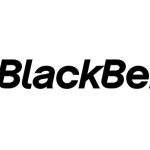(marketingmagazine.com.my) – by Josh Sklar
What was once simply called “ridesharing” – although the business prefers the term “ridesourcing” – now has the lofty abbreviation of TNC, which stands for Transportation Network Company, a formal name befitting a multi-billion dollar industry that’s only about five-years-old.
Despite being among the nouveau riche and proclaiming ideals of technological disintermediation and providing income to those who need it the most, the companies have been quick to wield their large profits to get their way without compromise as any faceless, greedy board of directors would demand.
Unfortunately for the most successful of these, Uber and Lyft, their 10,000+ drivers, and their customers in my tech startup laden city of Austin, they are still too naïve and clumsy to actually succeed.

Uber and Lyft lost 44% to 56% after spending the most our hip city has ever seen for a single campaign – over US$8 million for TV commercials, PR, and several glossy direct mail pieces sent to every resident each day – to get my fellow Austinites to support their initiatives, which included: overturning the city council’s requirement to have their drivers submit to background checks via fingerprinting (as these TNCs already do in places like New York City), allowing them to pick up/drop off passengers anywhere they like including traffic and bus lanes, no longer requiring drivers to carry fire extinguishers, and not having to place identifying logos on vehicles.
To show you how these young Silicon Valley startups approach things, last autumn they had 21 full time employees versus their 28 registered lobbyists in Texas, which are used solely to influence politicians and write the bills they submit to the state legislature.
They could certainly learn something from Donald Trump about bullying, paying people off, and using a brand to best effect to win hearts and minds (not that, in my humble opinion, Trump for President supporters actually have brains).
The bullying they employed came in the form of telling Austin that if the city council did not stop holding TNCs to the same standards as taxi companies and if the voters of the proposition the companies put forward rejected it, they would immediately cease operations thereby firing the more than 10,000 workers they claim they are trying to help with these regulatory changes, stranding the over 100,000 customers who have come to depend on their on demand transportation, and putting people in dire risk from drunk drivers (if you are to believe their expensive marketing).
True to their word, when a local group with a marketing budget 100x less than theirs defeated them they closed up shop, terminated everyone, and put up petulant messages on their app for anyone who missed the news and still needed a ride somewhere. It is clear that the millennial “save the world” personality of many of these hipster mobile app startups is a thin veneer for the more 20th century attitude of “greed is good” and “win at all costs.”
To cap off their campaign, Uber, Lyft, and their investors also began tweeting about how lame Austin is and that it no longer qualifies as a tech hub because the city wouldn’t let them operate however they’d like. Perhaps they are paying attention to Trump’s tactics, after all.
Josh Sklar is President of Heresy, Author of “Digital Doesn’t Matter (and other advertising heresies)” and can be connected via [email protected], @chiefheretic, http://heresy.co, http://digitaldoesntmatter.com
MARKETING Magazine is not responsible for the content of external sites.









